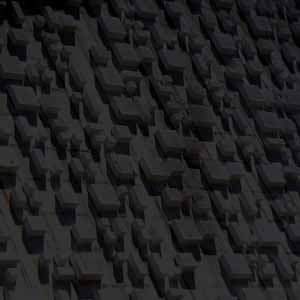
Megalopolis, my Arcadia
The fixed idea of getting work and welfare in the city makes urbanisations grow faster than ever. Around the turn of the century in 1900, half of the world's population was urban. More than three quarters of the billion 'poor people' are living in urban settings, in scanty cottages without any infrastructure.
Every day 180.000 people arrive in a city to begin a new life. This means that every 8 weeks a 'new' city of over 10 million habitants would pop up.
In 1950, the world knew only one city with over 10 million habitants: New York. By 2000, we could already count 19 megacities; only three of them in industrial states: Tokyo, New York and Los Angeles. The global network of cities feeds globalisation regardless of period: slave-trade, consumption, knowledge centres ...
Macrocéphalie urbaine / urban megacephality
Only if Internet access and satellite mobile phones were equally present on earth,
it would show if we (and I mean every living person on earth) could connect
each other independently from our locality. No one can tell what influence
these inventions would have on urbanisation. Maybe a step toward ruralisation?
Megacities are mainly caused by a high birth rate, rural exodus, and industrialisation.
In developing countries the cities cannot provide opportunities to fulfil basic needs.
Therefore the new arrivals are developing space; self-made cities grew and a very rich vocabulary: bidonvilles, squatters, shanty towns, squatter settlements, bairros de lata, favelas, mocambo, Armenviertel, chabalos, calampas, barriadas, colonias proletarias, pueblos jovenes, ranchitos, ciudades misérias, tugurios, sampanville, gourbiville, moudoun el quesdir, gecekondu, bustee, jhuggi, sharia, ...
Megalopolis
became the seat of the Arcadian League in 370 BC. In 331 BC,
Megalopolis was invaded by the Spartans and had a battle with the
Macedonians which the Macedonians made it to help Megalopolis.
www.wikipedia.org